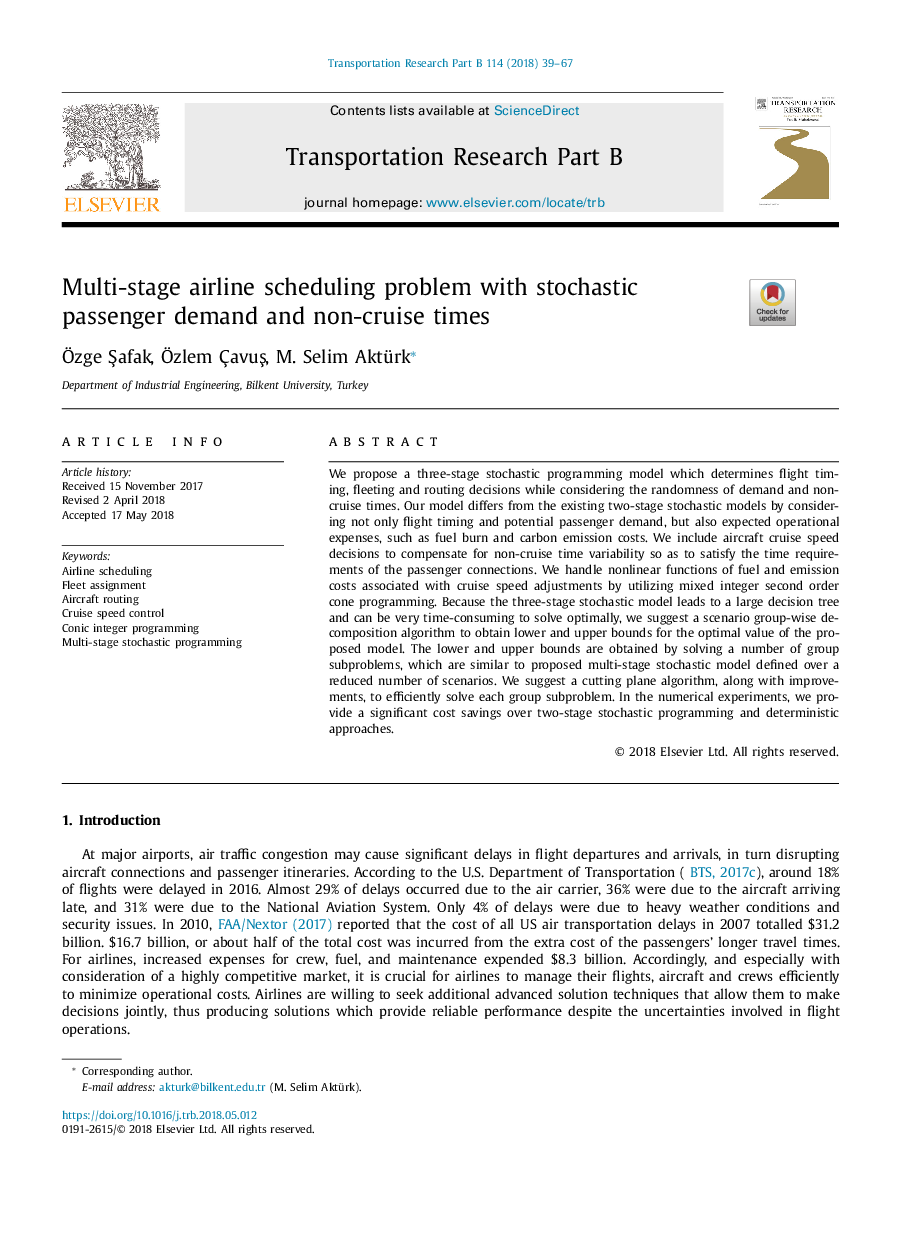| Article ID | Journal | Published Year | Pages | File Type |
|---|---|---|---|---|
| 7538911 | Transportation Research Part B: Methodological | 2018 | 29 Pages |
Abstract
We propose a three-stage stochastic programming model which determines flight timing, fleeting and routing decisions while considering the randomness of demand and non-cruise times. Our model differs from the existing two-stage stochastic models by considering not only flight timing and potential passenger demand, but also expected operational expenses, such as fuel burn and carbon emission costs. We include aircraft cruise speed decisions to compensate for non-cruise time variability so as to satisfy the time requirements of the passenger connections. We handle nonlinear functions of fuel and emission costs associated with cruise speed adjustments by utilizing mixed integer second order cone programming. Because the three-stage stochastic model leads to a large decision tree and can be very time-consuming to solve optimally, we suggest a scenario group-wise decomposition algorithm to obtain lower and upper bounds for the optimal value of the proposed model. The lower and upper bounds are obtained by solving a number of group subproblems, which are similar to proposed multi-stage stochastic model defined over a reduced number of scenarios. We suggest a cutting plane algorithm, along with improvements, to efficiently solve each group subproblem. In the numerical experiments, we provide a significant cost savings over two-stage stochastic programming and deterministic approaches.
Keywords
Related Topics
Social Sciences and Humanities
Decision Sciences
Management Science and Operations Research
Authors
Ãzge Åafak, Ãzlem ÃavuÅ, M. Selim Aktürk,
